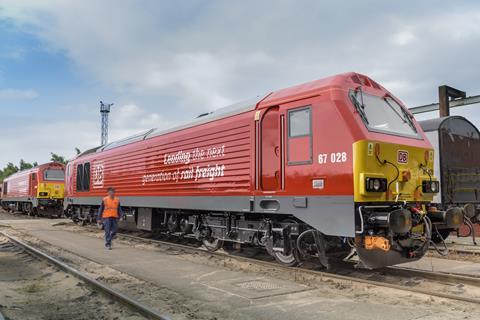
UK: ‘For too long the points have been unfairly set in favour of passenger train operators’, said DB Cargo UK CEO Andrea Rossi, when freight operators and the Rail Delivery Group set out the changes which they would like to see from government to support modal shift from road to rail.
‘I believe the Williams-Shapps Plan for Rail published recently provides the ideal platform on which we can start to address the current inequities’, said Rossi. ‘However, it will take a collaborative effort by all stakeholders’.
Published on July 8, the report Rail Freight: Building a stronger, greener future for Britain calls for:
- a benefits-led assessment of the best use of rail capacity, that takes into account the relative value of different choices and allows more, longer and heavier freight trains;
- upgrading infrastructure ‘to make it fit for the digital age’;
- ensuring that programmes such as the Transpennine Route Upgrade, Felixstowe to the Midlands & the North, HS2 and East-West Rail deliver for both freight and passengers;
- incentivising businesses to switch goods from road to rail, with charges that are affordable and provide long-term certainty;
- ensuring hubs and terminals are in the right places, with a planning system that protects existing sites and makes space for and access to new ones;
- expanding the Mode Shift Revenue Support scheme and reintroducing the Freight Facilities Grant in England;
- commitments to the infrastructure required to decarbonise rail freight, including a long-term programme of electrification and prioritising infill schemes. The report says electrifying 500 route-miles would allow 70% of freight journeys to be hauled electrically;
- ensuring the future industry structure supports freight growth and unlocks continued third-party investment, with a central point of co-ordination for freight that understands the national nature of the business and maintains a network-wide approach to planning.
‘Throughout the pandemic the railway have played a vital role in transporting goods and keeping supermarket shelves stocked’, said Robert Nisbet, Director of Nations & Regions for the Rail Delivery Group.
‘As we enter the recovery phase our roads and cities are once again becoming congested. If government wants to realise its commitment of net zero in 2050 and grow the economy, it has to put in place the policies to incentivise the shift from roads to railways for both goods and people.’



